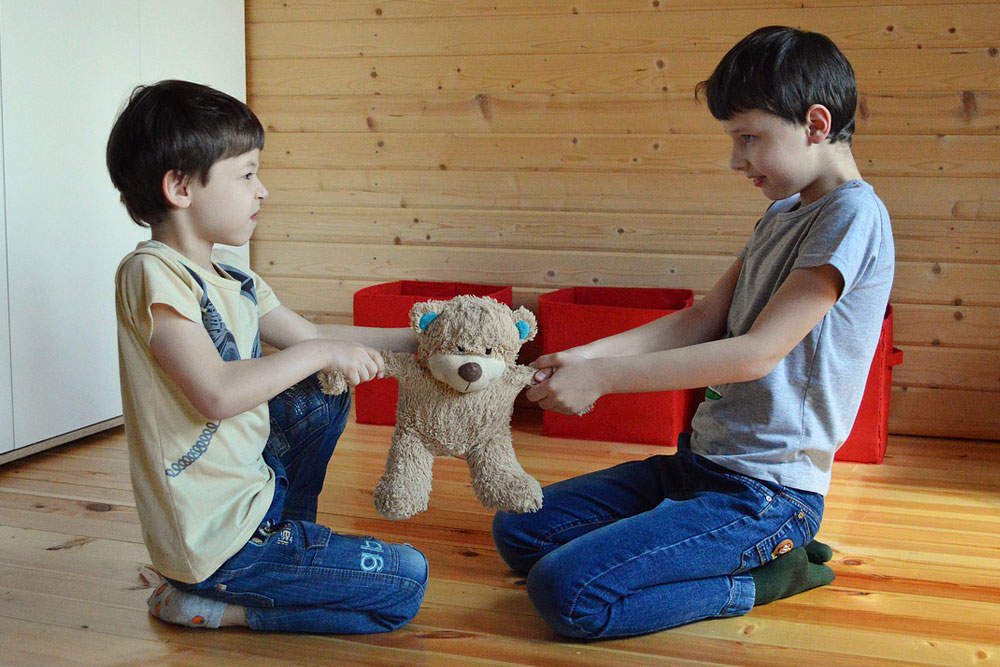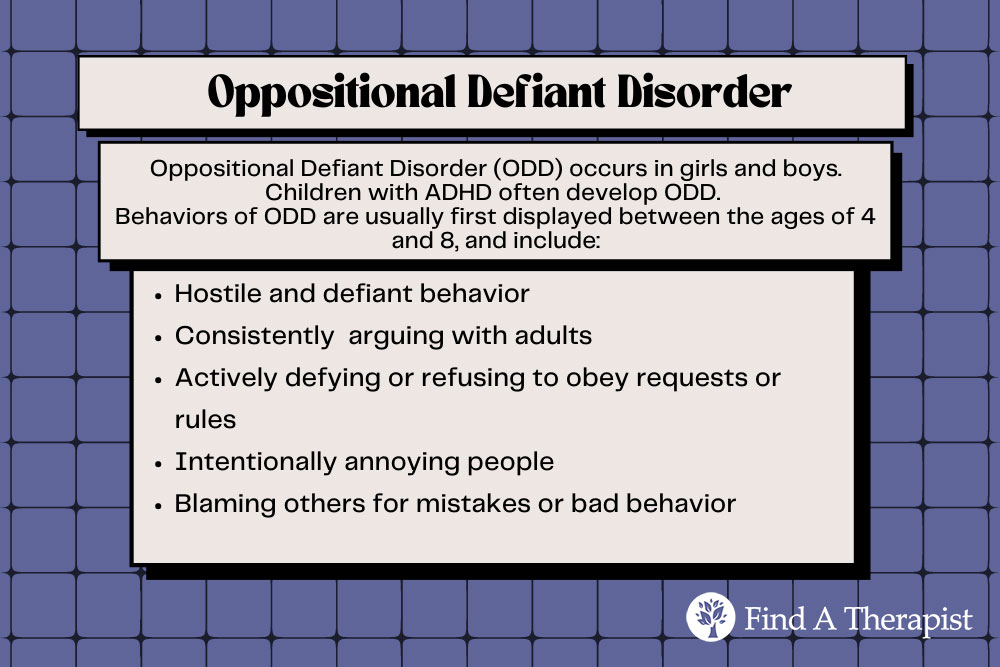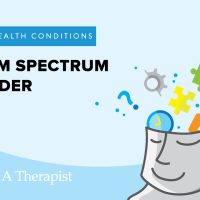Oppositional-Defiant Disorder In Children
Published on July 24th, 2018
Updated on January 3rd, 2024

A child with ODD will show patterns of defiance, rage, and resentment. They may often be angry, irritable, and unpredictable. These behavioral issues often cause challenges in the home, at school, or in extracurricular activities. Oppositional-defiant disorder (ODD) is a disorder in which a child has a pattern of the following:
- Irritability
- Anger
- Defiant behavior
- Vindictiveness
A child tends to develop ODD during childhood, but symptoms can sometimes appear in adolescence. Without proper treatment, ODD can develop into conduct disorder. Conduct disorder is a disorder in which a child or adolescent exhibits the following types of behaviors:
- Aggressive threats of physical harm toward people and/or animals
- Destructive behavior that causes property damage
- Deceitful or malicious behavior and violation of the rules
A child with ODD is uncooperative with peers and authority figures. They may fail to acknowledge or understand their behavioral issues. This poses a challenge when enforcing consequences and punishments for bad behavior. It can also cause a challenge with rewarding and reinforcing good behavior.
Sponsored by

Choose a therapist to work with and start healing with 20% off from BetterHelp.
Click HereSymptoms of Oppositional-Defiant Disorder
All children question authority and behave badly sometimes. Testing the boundaries at home, at school, and with peers is natural. It is considered ODD when this behavior becomes problematic for the child and damaging to peers and authority figures.
Symptoms of ODD cause significant social, behavioral, and cognitive impairment. One or two of the symptoms listed alone are not sufficient for diagnosis. A child must show at least four of the following symptoms within a 6-month period:
- Being unable or unwilling to control temper
- Being easily agitated or triggered
- Outbursts of anger or resentment
- Arguing with others, especially adults and authority figures
- Refusal to comply with rules and restrictions
- Taunting or deliberately annoying others
- Blaming others for their poor behavior
- Spiteful or vindictive behavior
These symptoms cannot be directed toward a sibling to be considered for diagnosis. They must affect areas of functioning and cause stress for the affected person or people around them. These behaviors may only show in certain settings (home, school, etc.) or show in different settings.

Risk Factors of Oppositional-Defiant Disorder
Some factors place a child at higher risk of developing ODD. These risk factors will affect a child between preschool and middle school ages. A combination of the following factors may contribute to the onset of the disorder:
A Co-occurring Mental Health Disorder
A child is at risk of developing ODD if they struggle with the following mental health disorders:
- Attention Deficit Hyperactivity Disorder (ADHD)
- Anxiety
- Depression
Environmental Factors
A child’s environment can contribute to the development of ODD. How a child was raised has a significant impact on their development. There are several factors at school and at home that may contribute to the onset of ODD. Such factors include:
- Attachment issues to parents or guardians
- Having a mother who suffered from postpartum depression
- Disciplinarian parenting styles
- A lack of supervision in the home
- Cases of abuse or neglect
- Growing up in an unsafe environment
- Being exposed to criminal activity
- Emotional neglect from parents or guardians
- Failure to learn healthy ways to express emotions
- Having a direct family member who suffers from a mental health disorder
- Having a direct family member with a history of criminal activity
- Attending a school with poor supervision or a lack of resources to meet the child’s needs
- Poor academic performance
- Lack of consistency at home or school
Genetics and Family History
A child is at risk of developing ODD if they have a direct family member who suffers from ODD or conduct disorder. Evidence supports there may be a genetic or hereditary component to the onset of ODD. Having a family member with similar behavioral issues increases the risk of ODD.
Treatment Options for Oppositional-Defiant Disorder
For best results, a case of ODD must be treated early. A case of undiagnosed ODD can stay with a child into adulthood. It will cause the child to be at increased risk of depression and criminal or antisocial behaviors. Untreated cases of ODD are at risk of developing into conduct disorder and antisocial personality disorder.
Cognitive-Behavioral Therapy (CBT) can be helpful for children who are suffering from ODD. CBT helps a child get in touch with how they are feeling. It teaches them how to express their feelings appropriately. CBT can also help a child learn how to use consequential thinking.
Family involvement in therapy can also help a child recover from ODD. Family therapy can help the child and family learn how to communicate with each other. It can help with developing healthy methods of functioning at home. These methods can promote cooperation and behavioral change. Family therapy can provide parents with effective parenting skills for managing their child.
Sponsored by

Find an affordable therapist online with 20% off from BetterHelp.
Click Here






Leave A Reply